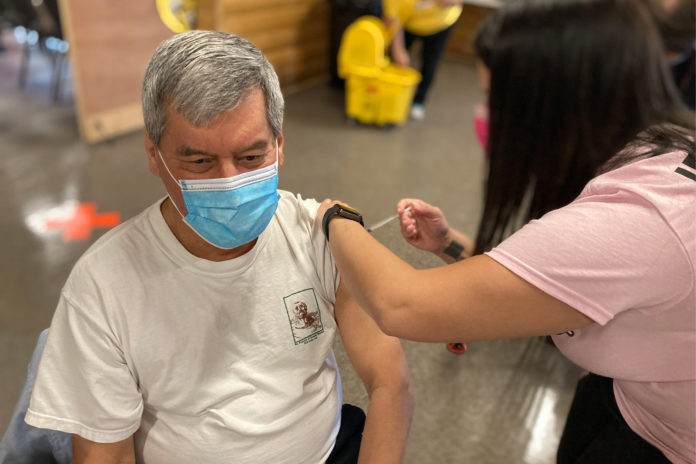

As vaccines begin to be distributed, only few have had the chance to receive one. Graydon Nicholas, a St. Thomas University professor from Tobique First Nation, and his wife received the Pfizer-BioNTech vaccine on March 8.
“It was quite an experience,” said Nicholas.
Other than a sore left shoulder, where he received the shot, Nicholas said he felt fine. He took Tylenol extra strength that night and in the morning and has been fine since.
There were 600 Tobique First Nation band members who received the vaccine after the reserve’s medical department issued the notification for Tobique First Nation members to sign up. Nicholas and his wife signed up shortly after finding out the news and were glad because Indigenous communities are often overlooked and forgotten, he said.
He predicted the communities wouldn’t receive their dose until October or November, had this batch not been specified for Indigenous Peoples.
“I wish everybody could have been on it,” he said. “But it just so happened that with our community, when they were short on supply they said ‘okay, we have to look after our people living on and off the reserve.'”
Nicholas has been able to teach an in-person class this year, unlike many professors in New Brunswick. With permission from STU, he was able to teach an introduction to Native studies at St. Mary’s First Nation with a classroom large enough to social distance.
He said he’s unsure of the future of the province and if the virus will be a reoccurring thing but he hopes this is the next step to avoiding Zoom calls every day.
When it comes to people who may not believe in the vaccine and try to avoid it, Nicholas said when you get to a certain age category and have certain medical concerns, it’s something you should get. He said he believes in the vaccine, which was the reason for him agreeing to get it.
“Why not, if it’s available to us,” he said. “That way if we get [COVID-19], we’re not spreading it to anybody else.”
An example he used was his grandmother, who passed away from the Spanish Flu in 1919. His mother was four years old at the time of his grandmother’s passing and his uncle was two. Nicholas doesn’t want that to happen to his family.
“When you’re four years old, what would you remember about your mom?” he said. “When I was born in ’46, I never knew who my grandmother was, other than a picture.”
